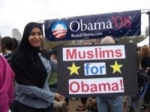03 September 2011
Lieberman: Obama's concern with offending Muslims is hurting the war effort
 The Obama administration’s fear of offending Muslims will hurt the U.S. war against terrorism, Sen. Joe Lieberman (I-Conn.) said Thursday in a speech blasting the president’s new counterterrorism strategy.
The Obama administration’s fear of offending Muslims will hurt the U.S. war against terrorism, Sen. Joe Lieberman (I-Conn.) said Thursday in a speech blasting the president’s new counterterrorism strategy.
Lieberman said that Obama’s strategy, which was released in June, “was ultimately a big disappointment,” and while it successfully identified the core of the domestic radicalization problem, it did not establish a clear plan of attack to deal with the growing issue.
The four-term senator and one-time presidential candidate said one of the key problems with the Obama administration’s strategy was that it continues to call terrorism that aims to harm the U.S., “violent extremism” instead of “violent Islamist extremism.”
“The administration still refuses to call our enemy in this war by its proper name: violent Islamist extremism,” Lieberman said, speaking at a National Press Club event hosted by the National Consortium for the Study of Terrorism and Responses to Terrorism (START).
“To call our enemy ‘violent extremism’ is so general and vague that it ultimately has no meaning. The other term used sometimes is Al Qaeda and its allies. Now that’s better but it is still too narrow and focuses us on groups as opposed to what I would call an ideology, which is what we’re really fighting.”
Lieberman, who as chairman of the Homeland Security and Governmental Affairs Committee has held numerous hearings on the issue of Islamic extremism, said that Obama needs to stop being afraid of offending the overwhelmingly large portion of law-abiding and well-intentioned Muslims with his rhetoric.
“I assume the refusal of the administration to speak honestly about the enemy is based on its desire not to do anything that might feed into al Qaeda’s propaganda that we’re engaged in a cold war against Islam,” he said. “But that is so self-evidently a lie that we can and have refuted it and I think we’ve done so effectively.”
The issue of singling out Muslims in the U.S.’s war against terrorists came to a head earlier this year when Rep. Pete King (R-N.Y.) held the first in his series of hearings on American-Muslim radicalization.
Nearly 100 Democratic lawmakers wrote to King, who is the chairman of the House Homeland Security Committee, and asked him to expand the scope of the hearing to include other radical extremists groups, such as white supremacists, environmental extremists, and animal-rights activists. King declined to expand the hearing’s scope and heralded it as a success for drawing attention to an issue that lawmakers and government officials avoid too often.
Lieberman referenced these sentiments on Thursday, saying that though they are extremist groups, they do not constitute the threat the U.S. currently faces.
“We’re not in a global war with those [groups],” he said. “We’re in a global war that affects our homeland security with Islamist extremists.”
The U.S.’s successful war against terrorists depends on the administration’s ability to correctly identify who its enemy is, Lieberman said.
“To win this struggle, it’s vital that we understand that we’re not just fighting an organization al Qaeda,” he said. “We are up against a broader ideology, if you will, a politicized theology, quite separate from the religion of Islam, that has fueled this war.
“Success in the war will come consequently not when a single terrorist group or its affiliates are eliminated but when the broader sets of ideas that are associated with it are rejected and discarded. A reluctance therefore to identify our enemy as violent Islamist extremism makes it harder I think to mobilize effectively to fight this war of ideas,” Lieberman said.
http://thehill.com/
10:56 Posted in UNITED STATES | Permalink | Comments (0) | ![]() Facebook |
Facebook |



















The comments are closed.